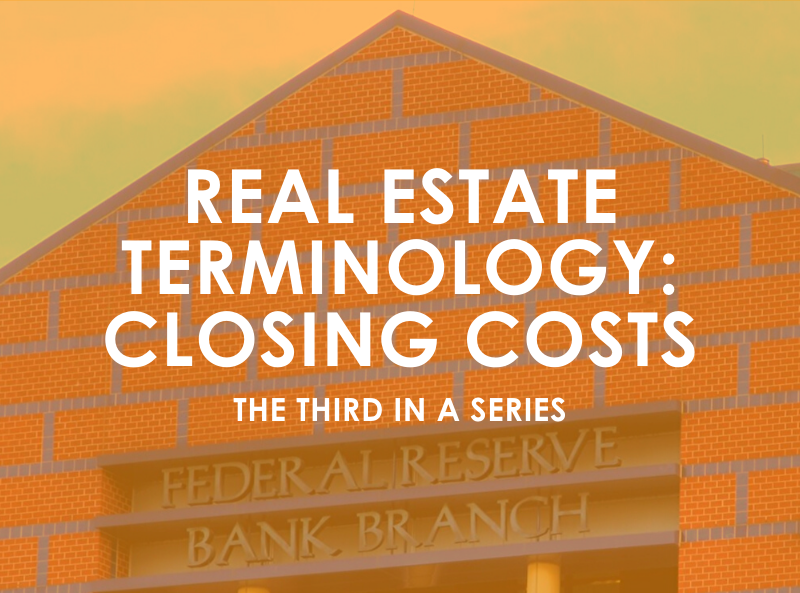
Closing costs include all of the fees and costs associated with completing the sale or purchase of a home using a mortgage, that are in addition to the actual cost of the property itself. These costs are due at the “close” of the deal, with the disbursal of loan monies, transfer of deed and completion of other final paperwork and are included in your final settlement statement. Some of these costs go to the lender and some to third-party participants. Since many different costs may be included at closing, we’ll separate these out for you.
What costs are included at closing?
Although costs can vary by state or locality, in general they can include:
- Application fee: a fee charged by the lender to cover the cost to process loan information.
- Appraisal fee: the fee charged by the qualified appraiser for completing the appraisal report (estimating the market value). Appraisal fees may be a fixed amount or based on a percentage of the estimated value of the property.
- Closing fee: a title company coordinates a real estate transaction including the payoff of existing mortgages, examining the title, reviewing loan documents, filing government forms and a myriad of other actions required before the deal is closed, and explaining all of these documents to the buyer. For these services, the title company charges certain fees.
- Flood title certification fee: mortgages made to homes in a flood zone may have specific requirements. If a title search specific to flood zones is required, there may be a separate fee. Homes located in flood zones require a flood insurance policy.
- Points: In simple terms, a “point” is one percent of the total amount of a mortgage loan. There are several types of points connected to loans, but the two most common are origination points and discount points.
- Origination points are the fees as a percentage of the loan charged by a mortgage broker for the service of processing the loan, also known as loan origination fees or activation fees.
- Discount points are a form of prepaid interest borrowers may purchase to decrease the interest amount on future payments. For each 1% of the loan amount (point) the borrower pays, the lender lowers the interest rate by an agreed-upon percentage.
- Recording fee: the county is responsible for recording the transfer of ownership and charges a fee for completing this paperwork.
- Survey fees: the title company may require a survey to determine the exact size and boundaries of the property.
- Taxes and insurance: during the closing process, property taxes and homeowners insurance fees are prorated to cover the time between closing and the first mortgage payment due (or for period specified by the lender) and collected in advance.
- Title insurance: Title insurance protects the buyer or lender against any such defects that may have been missed during the title search.
Lowering Closing Costs:
Some lenders offer a no-closing cost mortgage. When you get a no-closing cost loan, however, those fees still have to be paid, so the closing costs may be hidden in higher interest rates or higher loan amounts than the cost of the home. VA loans require the seller to pay a portion of the closing costs, so if you qualify for a VA loan, you can reduce some of the fees you pay. A highly motivated seller may offer to pay some or all of the closing costs to get the home sold more quickly. We can help you determine if the seller is motivated and willing, so talk to us about adding that option to your sales contract.
If you’re thinking of buying, let’s talk! We’d love to talk and see if Norhill Realty is the right firm to help you with your home search. Fill out the form below to get matched with an agent to learn more about the home buying process.
Oops! We could not locate your form.




